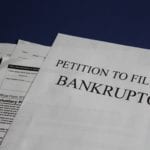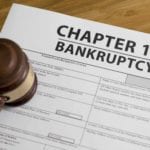Are Student Loans Dischargeable in Bankruptcy? For many years conventional wisdom has been that student loans are not eligible for discharge in bankruptcy filings. However, as we learn more about bankruptcy and student loans, we have found recent court rulings which may be opening the door for some borrowers to wipe out their student loan
Bankruptcy
Before Filing, Maximize Asset Protection through Exemption Planning with a Bankruptcy Attorney
Exemption Planning with a Bankruptcy Attorney In most bankruptcy cases, debtor’s assets are NOT liquidated. Such cases are referred to as “no asset” cases because from a creditor’s perspective, none of the debtor’s assets are liquidated for the benefit of creditors. As a bankruptcy attorney, it is a priority to provide debtor clients with strategies
Bankruptcy and Taxes
Bankruptcy and Taxes As a tax attorney, I am often asked if taxes can be discharged in bankruptcy. The answer to that question is . . . sometimes. Even when bankruptcy is available for a tax debt, bankruptcy may not be the best option for a person with a tax debt. Some tax debts are
Pros and Cons of Filing for Bankruptcy
Pros and Cons of Filing for Bankruptcy When you are researching whether or not you should file for bankruptcy, you are inundated with confusing information and jargon you are likely unfamiliar with. To help you with this process, we have compiled and condensed some information you should know about the differences between Chapter 7 and
Chapter 13 Bankruptcy
Chapter 13 Bankruptcy Chapter 13 bankruptcy refers to the portion of the U.S. Code 11 that involves bankruptcies. When filing bankruptcy under Chapter 13, an individual debtor is declaring that they are insolvent. However, they have the ability to pay their creditors some portion of the debt owed to them. Most Chapter 13 filers also
Chapter 7 Bankruptcy
Chapter 7 bankruptcy involves the liquidation of a debtor’s assets in order to pay a portion of their debts. Any remaining debts are then fully discharged, leaving the debtor free and clear of any liabilities. If a debtor has limited means in order to continue paying their creditors, this may be the best option for
Chapter 11 Bankruptcy
Chapter 11 Bankruptcy. The filing of a personal bankruptcy petition creates what is known as the bankruptcy estate. This is a separate taxable entity for IRS purposes. As a result, a person’s tax obligations do not end with the filing of a bankruptcy petition. Rather, those obligations vary depending upon the type of bankruptcy filing,
Discharging state income taxes in bankruptcy
State Income Taxes in Bankruptcy State income tax can be burdensome and may contribute to a debtor’s decision to file for bankruptcy. Fortunately, state income tax is dischargeable in bankruptcy under certain circumstances. Those circumstances are largely identical to the circumstances under which federal income taxes can be discharged, as the power of the bankruptcy
Requirements for Discharging Taxes in Bankruptcy
A debtor will typically file for bankruptcy in order to seek the protection of the bankruptcy laws against debts that cannot be paid in full, and it is not uncommon that such debts will include federal tax debts owed to the Internal Revenue Service (IRS). Typically, federal tax debt is not dischargeable in bankruptcy. That









